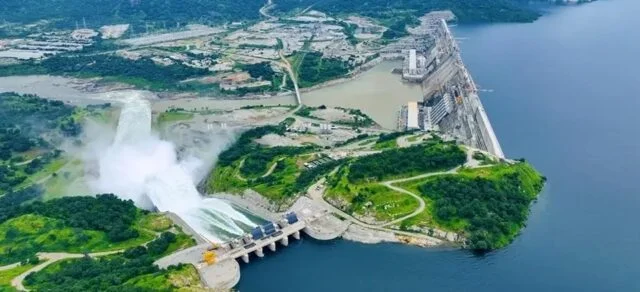Ethiopia will launch its Grand Ethiopian Renaissance Dam (GERD) on September 9, 2025. Built on the Blue Nile, this massive project could boost Ethiopia’s economy but has led to tensions with Egypt and Sudan.
A Powerful Project
Located near Sudan’s border, the $5 billion GERD will generate over 5,000 megawatts of electricity, doubling Ethiopia’s current power supply.
Started in 2011, the dam aims to end energy shortages and allow Ethiopia to sell electricity to neighboring countries, making it a key energy player in East Africa.
Downstream Concerns
Egypt and Sudan rely heavily on the Nile for water. Egypt, which gets over 90% of its water from the river, accuses Ethiopia of acting alone without agreement. Abbas Sharaky, a water expert at Cairo University, says Egypt uses its High Aswan Dam to cover shortages, but this isn’t a long-term fix.
Sudan reports less flooding in some seasons due to the dam and fears sudden water releases could cause floods or droughts. Ethiopia’s Water Minister, Habtamu Itefa, counters that the dam sends three to four times more water downstream during dry periods, helping both countries.
Seeking Cooperation
Ethiopia insists the GERD was built to avoid harming downstream nations. Yacob Arsano, a water politics expert at Addis Ababa University, says Ethiopia ensures steady water flow. He urges Nile Basin countries to discuss fair sharing calmly.
A joint group was formed to tackle water-sharing issues, but Egypt seeks a binding legal deal, and disputes continue. Itefa pushes for teamwork on projects benefiting nations like Uganda and Rwanda. However, some African leaders may skip the dam’s launch due to the conflict.
Ethiopia’s Bright Future
For Ethiopians, the GERD is a symbol of progress. Amakelech Debalke Gebre-Giorgis, a mother in Addis Ababa, said, “More power will improve our lives.” Many citizens share her excitement for growth.
The Road Ahead
As Ethiopia celebrates the GERD’s opening, it faces both opportunities and hurdles. The dam could reshape East Africa’s energy landscape, but its success depends on resolving disputes with Egypt and Sudan for fair Nile water sharing.






